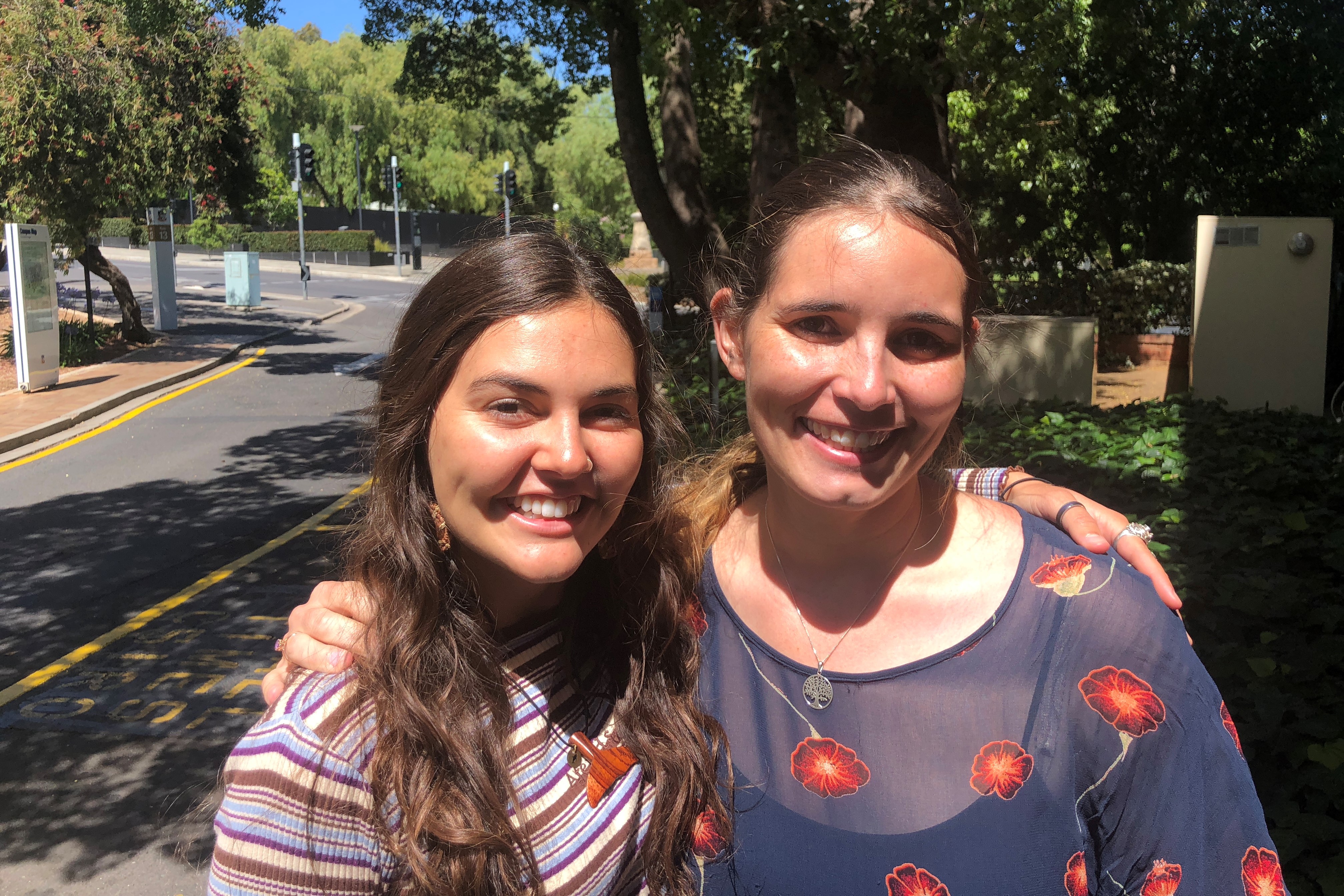A new program from the Commonwealth Scientific and Industrial Research Organisation (CSIRO) has created new opportunities for Aboriginal and Torres Strait Islander students to take part in marine research.
The (ITSS) invited Aboriginal and Torres Strait Islander university students to join the CSIRO research vessel Investigator. The first voyage departed today from Darwin, travelling to Fremantle.
Two university students boarded the 10-day journey along the west coast - Tiahni Adamson and Sophie Gilbey.
The CSIRO said Tiahni and Sophie will take part in the voyage research - including studies of the atmosphere and weather with the Bureau of Meteorology, investigation of microplastics in the ocean, and seabird and marine mammal surveys. The RV Investigator also conducts ocean-atmosphere monitoring and seafloor mapping. Tiahni Adamson, who is studying wildlife conservation biology at the University of Adelaide, was one of the first students selected for the program.
Tiahni Adamson, who is studying wildlife conservation biology at the University of Adelaide, was one of the first students selected for the program.

The voyage will have two university students on board, Tiahni Adamson and Sophie Gilbey, for a 10-day voyage along Australia’s west coast.
“It’s something I’ve dreamed about,” Ms Adamson said.
“It’s such a unique opportunity to learn from experienced researchers and the technical teams that deliver the science at sea, and I’m excited by what lies ahead in the coming weeks.”
Fellow South Australian student Sophie Gilbey, from Flinders University, has also boarded the ship.
Ms Gilbey is undertaking a combined degree of Environmental Science and Biodiversity and Conservation, and said the experience will help her studies.
“This is a great opportunity to gain valuable practical knowledge to combine with my theoretical knowledge learned from university,” Ms Gilbey said.
“I’m really excited to learn about all the different research that Investigator can deliver, and this will be something I can share with other students back at university.”
A growing demand
Hannah McCleary, Indigenous Cadet with the CSIRO Marine National Facility and a coordinator of ITSS, said there is an increasing demand for Aboriginal and Torres Strait Islander practitioners to lead sea country research.
“The ITSS program is part of CSIRO’s commitment to increase involvement and opportunities for Aboriginal and Torres Strait Islander people within the organisation and scientific research more broadly,” Ms McCleary said.
“The program seeks to deliver practical experience and connect students with experienced researchers and like-minded students. It offers a unique opportunity for students to get involved in saltwater science.”
The ITSS program runs every year, and is open to all Aboriginal and Torres Strait Islander students enrolled in an undergraduate or postgraduate degree at an Australian university.
Led by Chief Scientist Dr Alain Protat, the RV Investigator departed Darwin today and will arrive in Fremantle on Thursday 2 January 2020. This is the first time that the RV Investigator has been at sea over Christmas.
“It will definitely be a Christmas and New Year’s to remember for our ITSS students!” Ms McCleary said.


